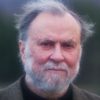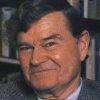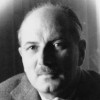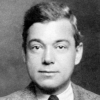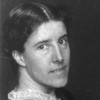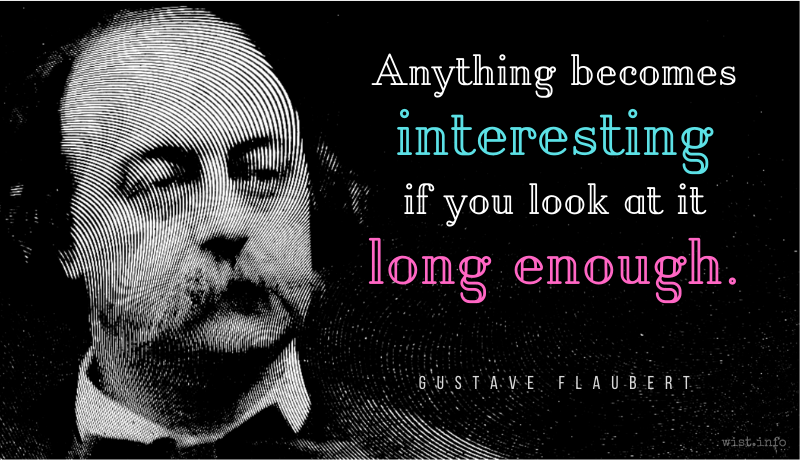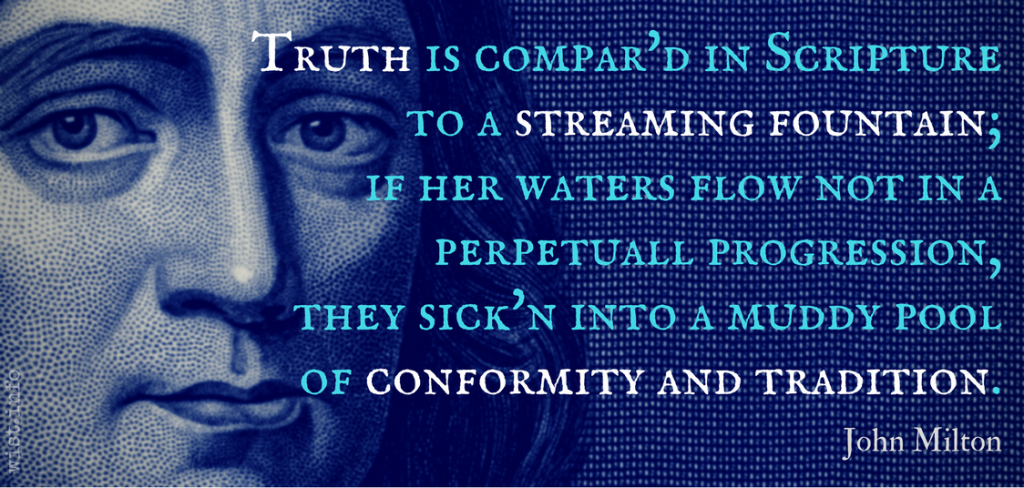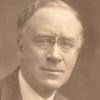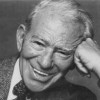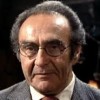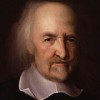“Wait a moment,” said Winnie-the-Pooh, holding up his paw.
He sat down and thought, in the most thoughtful way he could think. Then he fitted his paw into one of the Tracks … and then he scratched his nose twice, and stood up.
“Yes,” said Winnie-the-Pooh.
“I see now,” said Winnie-the-Pooh.
“I have been Foolish and Deluded,” said he, “and I am a Bear of No Brain at All.”A. A. Milne (1882-1956) English poet and playwright [Alan Alexander Milne]
Winnie-the-Pooh, ch. 3 “Pooh and Piglet Go Hunting” (1926)
(Source)
Quotations about:
contemplation
Note not all quotations have been tagged, so Search may find additional quotes on this topic.
The more things a man is interested in, the more opportunities of happiness he has, and the less he is at the mercy of fate, since if he loses one thing he can fall back upon another. Life is too short to be interested in everything, but it is good to be interested in as many things as are necessary to fill our days. We are all prone to the malady of the introvert, who, with the manifold spectacle of the world spread out before him, turns away and gazes only upon the emptiness within.
Bertrand Russell (1872-1970) English mathematician and philosopher
Conquest of Happiness, Part 2, ch. 11 “Zest” (1930)
(Source)
A measure of day-dreaming is a good thing, like a drug prudently used; it allays the sometimes virulent fever of the over-active mind, like a cool wind blowing through the brain to smooth the harshness of untrammelled thought; it bridges here and there the gaps, brings things into proportion and blunts the sharper angles. But too much submerges and drowns.
[Une certaine quantité de rêverie est bonne, comme un narcotique à dose discrète. Cela endort les fièvres, quelquefois dures, de l’intelligence en travail, et fait naître dans l’esprit une vapeur molle et fraîche qui corrige les contours trop âpres de la pensée pure, comble çà et là des lacunes et des intervalles, lie les ensembles et estompe les angles des idées. Mais trop de rêverie submerge et noie.]
Victor Hugo (1802-1885) French writer
Les Misérables, Part 4 “Saint Denis,” Book 2 “Eponine,” ch. 1 (4.2.1) (1862) [tr. Denny (1976)]
(Source)
(Source (French)). Alternate translations:A certain amount of reverie is good, like a narcotic in discreet doses. It soothes the fever, sometimes high, of the brain at work, and produces in the mind a soft and fresh vapour which corrects the too angular contours of pure thought, fills up the gaps and intervals here and there, binds them together, and blunts the sharp corners of ideas. But too much reverie submerges and drowns.
[tr. Wilbour (1862)]A certain amount of reverie is good, like a narcotic taken in discreet doses. It lulls to sleep the at times harsh fevers of the working brain, and produces in the mind a soft and fresh vapor which corrects the too sharp outlines of pure thought, fills up gaps and spaces here and there, and rounds the angles of ideas. But excess of reverie submerges and drowns.
[tr. Wraxall (1862)]A certain amount of dreaming is good, like a narcotic in discreet doses. It lulls to sleep the fevers of the mind at labor, which are sometimes severe, and produces in the spirit a soft and fresh vapor which corrects the over-harsh contours of pure thought, fills in gaps here and there, binds together and rounds off the angles of the ideas. But too much dreaming sinks and drowns.
[tr. Hapgood (1887)]A certain amount of reverie is good, like a narcotic in discreet doses. It soothes the fever, occasionally high, of the brain at work, and produces in the mind a soft, fresh vapor that corrects the all too angular contours of pure thought, fills up the gaps and intervals here and there, binds them together, and dulls the sharp corners of ideas. But too much reverie submerges and drowns.
[tr. Wilbour/Fahnestock/MacAfee (1987)]A certain amount of daydreaming does you good, like a narcotic in small doses. It sedates the sometimes severe fevers of the toiling intellect and produces in the mind a cool and gentle mist that softens the over-harsh contours of pure thought, fills in the gaps and intervals here and there, creates cohesion and smooths the sharp edges of ideas. But too much daydreaming drags you down and overwhelms you.
[tr. Donougher (2013)]
The wise man thinks about his troubles only when there is some purpose in doing so; at other times he thinks about other things, or, if it is night, about nothing at all.
Bertrand Russell (1872-1970) English mathematician and philosopher
Conquest of Happiness, Part 1, ch. 5 “Fatigue” (1930)
(Source)
I do not myself think that there is any superior rationality in being unhappy. The wise man will be as happy as circumstances permit, and if he finds the contemplation of the universe painful beyond a point, he will contemplate something else instead.
Bertrand Russell (1872-1970) English mathematician and philosopher
Conquest of Happiness, Part 1, ch. 2 “Byronic Unhappiness” (1930)
(Source)
To be lost in thought is not to be idle. There is visible work and invisible work. To contemplate is to toil, to think is to do.
[On n’est pas inoccupé parce qu’on est absorbé. Il y a le labeur visible et le labeur invisible.
Contempler, c’est labourer; penser, c’est agir.]Victor Hugo (1802-1885) French writer
Les Misérables, Part 2 “Cosette,” Book 7 “A Parenthesis,” ch. 8 (2.7.8) (1862) [tr. Donougher (2013)]
(Source)
(Source (French)). Alternate translations:A man is not idle, because he is absorbed in thought. There is a visible labour and there is an invisible labour.
To meditate is to labour; to think is to act.
[tr. Wilbour (1862); Wilbour/Fahnestock/MacAfee (1987)]To be absorbed is not to be unoccupied, there is an invisible as well as a visible labor.
To contemplate is to labor, to think is to act.
[tr. Wraxall (1862)]One is not unoccupied because one is absorbed. There is visible labor and invisible labor.
To contemplate is to labor, to think is to act.
[tr. Hapgood (1887)]One is not idle because one is absorbed. There is both visible and invisible labour. To contemplate is to toil, to think is to do.
[tr. Denny (1976)]
I will tell you my rule. Talk about those subjects you have had long in your mind, and listen to what others say about subjects you have studied but recently. Knowledge and timber shouldn’t be much used till they are seasoned.
Oliver Wendell Holmes, Sr. (1809-1894) American poet, essayist, scholar
Article (1858-04), “Autocrat of the Breakfast-Table,” Atlantic Monthly
(Source)
Collected in Autocrat of the Breakfast-Table, ch. 6 (1858).
A book is the only place I know in which you can examine a fragile thought without breaking it, or explore an explosive idea without fear that it will go off in your face. It is one of the few sources of information left that is served up without the silent black noise of a headline, the doomy hullabaloo of a commercial. It is one of the few havens remaining where a man’s mind can get both provocation and privacy.
And lead weights to your feet may my words be,
that you move slowly, like a weary man,
to the ‘yes’ and ‘no’ of what you do not see.
For he is a fool, and low among his kind,
who answers yea or nay without reflection,
nor does it matter on which road he runs blind.
Opinions too soon formed often deflect
man’s thinking from the truth into gross error,
in which his pride then binds his intellect.
[E questo ti sia sempre piombo a’ piedi,
per farti mover lento com’ uom lasso
e al sì e al no che tu non vedi:
ché quelli è tra li stolti bene a basso,
che sanza distinzione afferma e nega
ne l’un così come ne l’altro passo;
perch’ elli ’ncontra che più volte piega
l’oppinïon corrente in falsa parte,
e poi l’affetto l’intelletto lega.]Dante Alighieri (1265-1321) Italian poet
The Divine Comedy [Divina Commedia], Book 3 “Paradiso,” Canto 13, l. 112ff (13.112-121) [Thomas Aquinas] (1320) [tr. Ciardi (1970)]
(Source)
(Source (Italian)). Alternate translations:Now learn, my Son,
With tardy foot to make your Judgment run,:
And Fancy's wild excursions to repel
Unhappy they, who, by her lure betray'd.
And, like 'lorn travellers, by meteors led.
Their affirmation or denial give
Unweigh'd, for Fancy leans to Falsehood's part,
And soon to Passion's rule betrays the heart.
And her embruted Slaves in bondage live.
[tr. Boyd (1802), st. 19-20]And let this
Henceforth be led unto thy feet, to make
Thee slow in motion, as a weary man,
Both to the ‘yea’ and to the ‘nay’ thou seest not.
For he among the fools is down full low,
Whose affirmation, or denial, is
Without distinction, in each case alike
Since it befalls, that in most instances
Current opinion leads to false: and then
Affection bends the judgment to her ply.
[tr. Cary (1814)]Let this henceforth be lead unto thy feet,
To make thee move slow, like a weary man,
Both to the Yea and Nay, as far 's you can:
For he among the fools is low enough,
Without distinction, who affirms, denies,
Where one and where the other question lies.
It happens, too, that oftentimes incline
Opinions current to the falser side,
And intellect is by affection tied.
[tr. Bannerman (1850)]And lead shall this be always to thy feet,
To make thee, like a weary man, move slowly
Both to the Yes and No thou seest not;
For very low among the fools is he
Who affirms without distinction, or denies,
As well in one as in the other case;
Because it happens that full often bends
Current opinion in the false direction,
And then the feelings bind the intellect.
[tr. Longfellow (1867)]And let this be always as lead to thy feet, to make thee move slow as a weary man both to the yes and to the no that thou seest not; for he is very low down among the fools who affirms or denies without distinction, in the one no less than in the other pass: since it occurs that oftentimes the current opinion swerves in a false direction, and afterwards the desire binds the understanding.
[tr. Butler (1885)]And let this to thy feet a dead weight be,
Like one fatigued to make thee journey slow
Towards the Yes, or No, thou dost not see.
For he amongst the fools is very low,
Who without thought affirmeth, or denies,
Whether to one or other step he go;
Because it happens that too often flies
Public opinion into error's part.
And then its influence the intellect ties.
[tr. Minchin (1885)]And let this be ever as lead to thy feet, to make thee move slow as a weary man, both to the YES and to the NO which thou seest not; for he is very low among the fools who affirms or denies without distinction, alike in the one and in the other case: because it happens, that oftentimes the current opinion bends in false direction, and then the inclination binds the understanding.
[tr. Norton (1892)]And let this ever be lead to thy feet, to make The thee move slow, like a weary man ; both to the yea and nay thou seest not;
for he is right low down amongst the fools who maketh affirmation or negation without distinction between case and case;
wherefore it chanceth many times swift-formed rash opinion leaneth the wrong way, and then con-ceit bindeth the intellect.
[tr. Wicksteed (1899)]And let this always be lead on thy feet to make thee slow, like a weary man, in moving either to the yea or the nay where thou dost not see clearly; for he ranks very low among the fools, in the one case as in the other, who affirms or denies without distinguishing, since it often happens that a hasty opinion inclines to the wrong side and then the feelings bind the intellect.
[tr. Sinclair (1939)]Ever let this, like lead, thy feed down-weigh
To make thee, where thou see'st not clear, move slow,
Like one who is weary, both to Yea and Nay.
For he among the foolish stands right low
Who affirms without distinction or denies
With whichsoever case he hast o do;
Since often it haps that rashness of surmise
Leadeth the judgment on false roads to start;
Then fond desire the understanding ties.
[tr. Binyon (1943)]And to thy feet be this hobble, wrought
Of lead, to make thee move at sluggard pace
Toward Yea and Nay where thou perceivest naught,
For low among the dunces is his place
Who hastes to accept or reject
With no distinction made 'twixt case and case;
Thence come rash judgements, mostly incorrect
And prejudiced, and stubborn all the more
That self-conceit shackles the intellect.
[tr. Sayers/Reynolds (1962)]And let this ever be as lead to your feet, to make you slow, like a weary man, in moving either to the yes or the no which you see not; for he is right low down among the fools, alike in the one asnd in the other case, who affirms or denies without distinguishing; because it happens that oftentimes hasty opinion inclines to the wrong side, and then fondness for it binds the intellect.
[tr. Singleton (1975)]And let this always make your feet like lead
So that you move like a man who is worn out
Towards a Yes or No you cannot actually see:
For a man is right down among the fools
In the case either of affirmation or denial,
If he proceeds without making distinctions;
Because it often happens that a quick opinion
Inclines int he wrong direction, and after that
The intellect is hampered by vanity.
[tr. Sisson (1981)]And let this weigh as lead to slow your steps,
to make you move as would a weary man
to yes or no when you do not see clearly:
whether he would affirm or would deny,
he who decides without distinguishing
must be among the most obtuse of men;
opinion -- hasty -- often can incline
to the wrong side, and then affection for
one’s own opinion binds, confines the mind.
[tr. Mandelbaum (1984)]Let this be leaden weight upon your feet
to make you move slow as a weary man
both to the ‘yes’ or ‘no’ you do not see,
for he ranks low, indeed, among the fools,
who rushes to affirm or to deny,
no matter which, without distinguishing.
Opinions formed in haste will oftentimes
lead in a wrong direction, and man’s pride
then intervenes to bind his intellect.
[tr. Musa (1984)]And let this ever be lead upon your feet, to make you move slowly, like a weary man, to both the yes and the no that you do not see:
for surely he is low among the fools who affirms and denies without distinction in either case,
for it often happens that a hasty opinion turns in a wrong direction, and then affect binds the intellect.
[tr. Durling (2011)]And let this always weight your feet down with lead, and make you go slowly, like a tired man, approaching the yes or no you do not grasp, since he is truly down there among the fools, who affirms or denies without distinguishing between cases, so that it often happens that a quick opinion leans to the wrong side, and then Pride entangles the intellect.
[tr. Kline (2002)]And let this be a lead weight on your feet,
so that you move as slow as if worn out
to any “yes” or “no” unclear to you.
For no fool is as low a fool as one
who taking either of these steps will fail
affirming to denying in distinction.
So often when our judgement rushes on
it happens that we veer in false directions
and then emotions bind tie intellect.
[tr. Kirkpatrick (2007)]And let this always be as lead upon your feet
to make you slow, just like a weary man, in moving,
whether to yes or no, unless you see both clearly.
For he ranks low among the fools
who, without making clear distinctions,
affirms or denies in one case or another,
since it often happens that a hasty opinion
inclines one to the erring side, and then
fondness for it fetters the working of the mind.
[tr. Hollander/Hollander (2007)]And let this forever be like lead on your feet,
Forcing you to go slowly, like someone weary,
Saying 'yes' or 'no' when neither is clear.
A man who either concurs or disagrees
Without some plain distinctions is a fallen fool,
And pretty low even at that level,
For hasty judgment often bends to what's wrong,
And having made a foolish choice the fool
Holds on, letting his foolery tie up his mind.
[tr. Raffel (2010)]
Human nature with all its infirmities and depravation is still capable of great things. It is capable of attaining to degrees of wisdom and of goodness, which, we have reason to believe, appear respectable in the estimation of superior intelligences. Education makes a greater difference between man and man, than nature has made between man and brute. The virtues and powers to which men may be trained, by early education and constant discipline, are truly sublime and astonishing.
John Adams (1735-1826) American lawyer, Founding Father, statesman, US President (1797-1801)
Letter (1775-10-29) to Abigail Adams
(Source)
Learning without thought ends in a blur. Thought without learning will soon totter.
[學而不思則罔、思而不學則殆。]Confucius (c. 551- c. 479 BC) Chinese philosopher, sage, politician [孔夫子 (Kǒng Fūzǐ, K'ung Fu-tzu, K'ung Fu Tse), 孔子 (Kǒngzǐ, Chungni), 孔丘 (Kǒng Qiū, K'ung Ch'iu)]
The Analects [論語, 论语, Lúnyǔ], Book 2, verse 15 (2.15) (6th C. BC – AD 3rd C.) [tr. Ware (1950)]
(Source)
Many (but not all) translators suggest that learning/study here is not general academics, but examining and maintaining the ancient traditions.
(Source (Chinese)). Alternate translations:Learning without thought is labour lost; thought without learning is perilous.
[tr. Legge (1861)]Learning with [sic] thought is a snare; thought without learning is a danger.
[tr. Jennings (1895)]Study without thinking is labour lost. Thinking without study is perilous.
[tr. Ku Hung-Ming (1898)]Learning without thought is useless. Thought without learning is dangerous.
[tr. Soothill (1910)]Education without meditation is useless. Meditation without education is risky.
[tr. Soothill (1910), alternate]Research without thought is a mere net and entanglement: thought without gathering data, a peril.
[tr. Pound (1933)]He who learns but does not think, is lost. He who thinks but does not learn is in great danger.
[tr. Waley (1938)]If one learns from others but does not think, one will be bewildered. If, on the other hand, one thinks but does not learn from others, one will be in peril.
[tr. Lau (1979)]If one studies but does not think, one is caught in a trap. If one thinks but does not study, one is in peril.
[tr. Dawson (1993)]To study without thinking is futile. To think without studying is dangerous.
[tr. Leys (1997)]Learning without thinking is fruitless; thinking without learning is perplexing.
[tr. Huang (1997); additional translations.]Studying but not thinking, it is confused; Thinking but not studying, it is dangerous.
[tr. Cai/Yu (1998)]Learning without due reflection leads to perplexity; reflection without learning leads to perilous circumstances.
[tr. Ames/Rosemont (1998)]If he studies and does not reflect, he will be rigid. If he reflects but does not study, he will be shaky.
[tr. Brooks/Brooks (1998)]To learn and never think -- that's delusion. But to think and never learn -- that is perilous indeed!
[tr. Hinton (1998)]If you learn without thinking about what you have learned, you will be lost. If you think without learning, however, you will fall into danger.
[tr. Slingerland (2003)]Learning without thought is pointless. Thought without learning is dangerous.
[tr. Watson (2007)]If you learn but do not think, you will be dazed. If you think but do not learn, you will be in danger.
[tr. Chin (2014)]Learning from books without critical thinking results in confusion. Thinking vacuously without learning from books is perilous.
[tr. Li (2020)]
As the Swiss inscription says: Sprechen ist silbern, Schweigen ist golden — “Speech is silvern, Silence is golden”; or, as I might rather express it: speech is of time, silence is of eternity.
Thomas Carlyle (1795-1881) Scottish essayist and historian
Sartor Resartus, Book 3, ch. 3 (1834)
(Source)
Quoting Herr Teufelsdröckh.
This chapter first appeared in Fraser's Magazine for Town and Country, Vol. 9, No. 54 (1834-06) - Book 3, ch. 1-5.
But the greatest undertakings should not be overly pondered, lest contemplation of difficulties too clearly foreseen appall you.
[Los grandes empeños aun no se han de pensar, basta ofrecerse, porque la dificultad, advertida, no ocasione el reparo.]
Baltasar Gracián y Morales (1601-1658) Spanish Jesuit priest, writer, philosopher
The Art of Worldly Wisdom [Oráculo Manual y Arte de Prudencia], § 204 (1647) [tr. Fischer (1937)]
(Source)
(Source (Spanish)). Alternate translations:As to great enterprizes, we must not stand reasoning, it is enough that we embrace them when they present, lest the consideration of their difficulty make us abandon the attempt.
[Flesher ed. (1685)]Great undertakings are not to be brooded over, lest their difficulty when seen causes despair.
[tr. Jacobs (1892)]In moments of great danger, don't even think, simply act. Don't dwell on the difficulties.
[tr. Maurer (1992)]
In short, the contradiction in the old defense of class stratification is that it defends leisure for the leisure class, but not for the underclass. With reference to the underclass, leisure is said to destroy the incentive to work, leads to slothfulness and self-indulgence, and retards cognitive and moral development. When applied to the leisure class, the concept evokes an image of Plato and Aristotle, whose leisure was based on slave labor, creating the intellectual foundations of Western civilization; or patrician slave-owners like Washington and Jefferson laying the foundations of American civilization; or creative aristocrats like Count Leo Tolstoy or Bertrand, Earl Russell; or, even closer to home, of our own sons and daughters (or of ourselves, when we were young adults) being freed from the stultifying tasks of earning a living until well into our adult years so that we could study in expensive universities to gain specialized knowledge and skills.
James Gilligan (b. c. 1936) American psychiatrist and author
Preventing Violence, ch. 5 (2001)
(Source)
The Intellect engages us in the pursuit of Truth. The Passions impel us to Action.
[Cogitatio in vero exquirendo maxime versatur, appetitus impellit ad agendum.]
Marcus Tullius Cicero (106-43 BC) Roman orator, statesman, philosopher
De Officiis [On Duties; On Moral Duty; The Offices], Book 1, ch. 35 (1.35) / sec. 132 (44 BC) [Barnes (1814)]
(Source (Latin)). Alternate translation:Reflection is chiefly employed in the investigation of truth, appetite impels to action.
[tr. McCartney (1798)]Reflection chiefly applies itself in the search of truth. Appetite prompts us to action.
[tr. Edmonds (1865)]Thought is occupied chiefly in seeking the truth; impulse urges to action.
[tr. Peabody (1883)]Thought is employed in the discovery of truth, appetite impels to action.
[tr. Gardiner (1899)]Thought is occupied chiefly with the discovery of truth; impulse prompts to action.
[tr. Miller (1913)]Thought is mostly expended in seeking out the truth, passion urges men to action.
[tr. Edinger (1974)]
In the middle of the night, things well up from the past that are not always cause for rejoicing — the unsolved, the painful encounters, the mistakes, the reasons for shame or woe. But all, good or bad, give me food for thought, food to grow on.
May Sarton (1912-1995) Belgian-American poet, novelist, memoirist [pen name of Eleanore Marie Sarton]
At Seventy (1984)
(Source)
There is no doubt that solitude is a challenge and to maintain balance within it a precarious business. But I must not forget that, for me, being with people or even with one beloved person for any length of time without solitude is even worse. I lose my center. I feel dispersed, scattered, in pieces. I must have time alone in which to mull over my encounter, and to extract its juice, its essence, to understand what has really happened to me as a consequence of it.
May Sarton (1912-1995) Belgian-American poet, novelist, memoirist [pen name of Eleanore Marie Sarton]
Journal of a Solitude (1973)
(Source)
For even the humblest person, a day spent without the sight or sound of beauty, the contemplation of mystery, or the search for truth and perfection is a poverty-stricken day; and a succession of such days is fatal to human life.
Lewis Mumford (1895-1990) American writer, philosopher, historian, architect
The Condition of Man (1944)
(Source)
No matter what the belief, if it had modestly said, “This is our best thought, go on, think farther!” then we could have smoothly outgrown our early errors and long since have developed a religion such as would have kept pace with an advancing world. But we were made to believe and not allowed to think. We were told to obey, rather than to experiment and investigate.
Solitude is not lack.
Laurie Helgoe (b. 1960) American psychologist and author
Introvert Power, ch. 2 (2008)
(Source)
Sometimes misquoted "Solitude is not a lack."
Anything becomes interesting if you look at it long enough.
[Pour qu’une chose soit intéressante, il suffit de la regarder longtemps.]
Gustave Flaubert (1821-1880) French writer, novelist
Letter to Alfred Le Poittevin (16 Sep 1845)
(Source)
Alt. trans.: "To make something interesting, just look at it for a long time."
Anger blows out the lamp of the mind. In the examination of a great and important question, every one should be serene, slow-pulsed and calm.
Robert Green Ingersoll (1833-1899) American lawyer, freethinker, orator
“The Christian Religion,” Article 3, The North American Review (1881)
(Source)
One of the things I like best about animals in the wild is that they’re always off on some errand. They have appointments to keep. It’s only we humans who wonder what we’re here for.
Diane Ackerman (b. 1948) American poet, author, naturalist
“In Praise of Bats,” The Moon by Whale Light (1991)
(Source)
Sometimes it takes darkness and the sweet
confinement of your aloneness
to learnanything or anyone
that does not bring you aliveis too small for you.
Truth is compar’d in Scripture to a streaming fountain; if her waters flow not in a perpetuall progression, they sick’n into a muddy pool of conformity and tradition.
[Truth is compared in Scripture to a streaming fountain; if her waters flow not in a perpetual progression, they sicken into a muddy pool of conformity and tradition.]
Then I went back to my hotel to think long thoughts. As is usual when I’m thinking long thoughts, I lay on the bed with my eyes closed. Susan says I often snore when thinking long thoughts.
Be able to be alone. Loose not the advantage of Solitude, and the Society of thy self, nor be only content, but delight to be alone and single with Omnipresency.
Thomas Browne (1605-1682) English physician and author
Christian Morals, Part 3, sec. 9 (1716)
(Source)
But the greatest gift in the power of loneliness to bestow is the realization that life does not consist either of wallowing in the past or of peering anxiously at the future; and it is appalling to contemplate the great number of often painful steps by which one arrives at a truth so old, so obvious, and so frequently expressed. It is good for one to appreciate that life is now. Whether it offers little or much, life is now — this day — this hour — and is probably the only experience of the kind one is to have.
I could wile away the hours
Conferrin’ with the flowers,
Consultin’ with the rain;
And my head I’d be scratchin’
While my thoughts were busy hatchin’,
If I only had a brain.
For all but one in thousands the goal of their thinking is the point at which they have become tired of thinking.
[Tausenden für einen ist das Ziel ihres Nachdenkens die Stelle, wo sie des Nachdenkens müde geworden.]Gotthold Lessing (1729-1781) German playwright, philosopher, dramaturg, writer
Letter (1771-01-09), to Moses Mendelssohn
(Source)
(Source (German)). Alternate translations:In a thousand cases to one, the goal of reflection is set at the point where one gets tired of reflection.
(Source)For the vast majority of men, the object of their reflection lies at the point where they become tired of reflecting.
(Source)
‘Patriotism is not enough.’ But neither is anything else. Science is not enough, religion is not enough, art is not enough, politics and economics are not enough, nor is love, nor is duty, nor is action however disinterested, nor, however sublime, is contemplation. Nothing short of everything will really do.
But in stating prudential rules for our government in society I must not omit the important one of never entering into dispute or argument with another. I never yet saw an instance of one of two disputants convincing the other by argument. I have seen many of their getting warm, becoming rude, & shooting one another. Conviction is the effect of our own dispassionate reasoning, either in solitude, or weighing within ourselves dispassionately what we hear from others standing uncommitted in argument ourselves.
If we are to survive, we must have ideas, vision, courage. These things are rarely produced by committees. Everything that matters in our intellectual and moral life begins with an individual confronting his own mind and conscience in a room by himself.
Self-correction begins with self-knowledge.
[Principio es de corregirse el conocerse]
Baltasar Gracián y Morales (1601-1658) Spanish Jesuit priest, writer, philosopher
The Art of Worldly Wisdom [Oráculo Manual y Arte de Prudencia], § 69 (1647) [tr. Maurer (1992)]
(Source)
(Source (Spanish)). Alternate translations:The knowledge of one's self is the beginning of amendment.
[Flesher ed. (1685)]Self-knowledge is the beginning of self-improvement.
[tr. Jacobs (1892)]It is a first principle that in order to improve yourself, you must first know yourself.
[tr. Fischer (1937)]
Hadst thou not Greek enough to understand thus much: The end of Man is an Action and not a Thought, though it were the noblest.
Thomas Carlyle (1795-1881) Scottish essayist and historian
Sartor Resartus, Book 2, ch. 6 (1834)
(Source)
From Aristotle, Nicomachean Ethics, 1.3.6 ("The end aimed at is not knowledge but action").
This chapter first appeared in Fraser's Magazine for Town and Country, Vol. 9, No. 51 (1834-03) -- Book 2, ch. 5-7.
Misery is almost always the result of thinking.
Joseph Joubert (1754-1824) French moralist, philosopher, essayist, poet
Pensées [Thoughts], ch. 5 “Des Passions et des Affections de l’Âme [On the Soul],” (1850 ed.) [tr. Collins (1928)]
(Source)
I could not find an analog in other translations of the Pensées, or in the published French.
The question is: Bad as I am, have I the right to think? And I think I have for two reasons: First, I cannot help it. And secondly, I like it.
Robert Green Ingersoll (1833-1899) American lawyer, freethinker, orator
“What Must We Do To Be Saved?” Sec. 1 (1880)
(Source)
Learning makes a Man fit Company for himself.
Thomas Fuller (1654-1734) English physician, preacher, aphorist, writer
Gnomologia: Adages and Proverbs (compiler), # 3163 (1732)
(Source)
The world can only be grasped by action, not by contemplation. The hand is more important than the eye. We are active; and indeed we know, as something more than a symbolic accident in the evolution of man, that it is the hand that drives the subsequent evolution of the brain. We find tools today made by man before he became man. Benjamin Franklin in 1778 called man “a tool-making animal,” and that is right.
Leisure is the mother of Philosophy; and Common-wealth, the mother of Peace, and Leisure: Where first were great and flourishing Cities, there was first the study of Philosophy.
Illness is a convent which has its rule, its austerity, its silences, and its inspirations.
Albert Camus (1913-1960) Algerian-French novelist, essayist, playwright
Notebooks: 1942-1951, Notebook 4, Jan 1942 – Sep 1945 [tr. O’Brien/Thody (1963)
(Source)
HAMLET: Thus conscience does make cowards of us all,
And thus the native hue of resolution
Is sicklied o’er with the pale cast of thought,
And enterprises of great pitch and moment
With this regard their currents turn awry
And lose the name of action.William Shakespeare (1564-1616) English dramatist and poet
Hamlet, Act 3, sc. 1, l. 91ff (3.1.91-96) (c. 1600)
(Source)
"Conscience" in this case is used in its archaic form, as consciousness, awareness.
It often happens that things come into the mind in a more finished form than could have been achieved after much study.
[Il arrive souvent que des choses se présentent plus achevées à notre esprit qu’il ne les pourrait faire avec beaucoup d’art.]François VI, duc de La Rochefoucauld (1613-1680) French epigrammatist, memoirist, noble
Réflexions ou sentences et maximes morales [Reflections; or Sentences and Moral Maxims], ¶101 (1665-1678) [tr. Tancock (1959)]
(Source)
Present in the 1st (1665) edition, where variants included the phrase:There are pretty things that the mind does not seek, and that it finds all completed in itself; it seems that they are hidden there, like gold and diamonds in the bosom of the earth.
[Il y a des jolies choses que l’esprit ne cherche point, et qu’il trouve toutes achevées en lui-même; il semble qu’elles y soient cachées, comme l’or et les diamants dans le sein de la terre.]
(Source (French)). Alternate translations:There are certain ingenious things which the mind seeks not after, but finds brought to their full perfection in it self; so that it should seem they lay hid there, as Gold and Diamonds do in the bosom of the earth.
[tr. Davies (1669), ¶190]It often happens, that some things offer themselves to our Wit, and are finer description in the very first thought, than it is possible for a man to make them by the Additions of Art and Study.
[tr. Stanhope (1694), ¶102]It often happens, that some Things offer themselves finer in the very first Thought, than it were possible for a Man to have made them by Art and Study.
[pub. Donaldson (1783)]It often happens, that things present themselves to the mind; more finished, than we, with much labour, can make them.
[ed. Gowens (1851), ¶391]It often happens; that things present themselves to our minds in a more complete state than we could by much art make them arrive at.
[tr. Bund/Friswell (1871), ¶104]Ideas often flash across our minds more complete than we could make them after much labour.
[tr. Heard (1917), ¶101]It often happens that ideas reach our mind in a state of perfection exceeding that which our intellect, with all the resources of art, could fashion.
[tr. FitzGibbon (1957), ¶101]Things often spring spontaneously to mind in a more finished form than could be achieved with great labor and thought.
[tr. Kronenberger (1959), ¶101]
The pillow is a silent Sibyl, and to sleep upon an enterprise avails more than to be sleepless under it.
[Es la almohada Sibila muda, y el dormir sobre los puntos vale más que el desvelarse debajo de ellos.]
Baltasar Gracián y Morales (1601-1658) Spanish Jesuit priest, writer, philosopher
The Art of Worldly Wisdom [Oráculo Manual y Arte de Prudencia], § 151 (1647) [tr. Fischer (1937)]
(Source)
(Source (Spanish)). Alternate translations:The Pillow is a dumb Sibylle. To sleep upon a thing that is to be done, is better than to be awaked by a thing already done.
[Flesher ed. (1685)]The pillow is a silent Sibyl, and it is better to sleep on things beforehand than lie awake about them afterwards.
[tr. Jacobs (1892)]The pillow is a tongueless sibyl, and it is better to sleep on something than to lie awake when things are on top of you.
[tr. Maurer (1992)]
Thought is the work of the intellect, reverie is its self-indulgence. To substitute day-dreaming for thought is to confuse a poison with a source of nourishment.
[La pensée est le labeur de l’intelligence, la rêverie en est la volupté. Remplacer la pensée par la rêverie, c’est confondre un poison avec une nourriture.]
Victor Hugo (1802-1885) French writer
Les Misérables, Part 4 “Saint Denis,” Book 2 “Eponine,” ch. 1 (4.2.1) (1862) [tr. Denny (1976)]
(Source)
(Source (French)). Alternate translations:Thought is the labour of the intellect, reverie is its pleasure. To replace thought by reverie is to confound poison with nourishment.
[tr. Wilbour (1862)]Thought is the labor of the intellect, reveries its voluptuousness; substituting reverie for thought is like confounding poison with nutriment.
[tr. Wraxall (1862)]Thought is the toil of the intelligence, revery its voluptuousness. To replace thought with revery is to confound a poison with a food.
[tr. Hapgood (1887)]Thought is the labor of the intellect, reverie its pleasure. To replace thought with reverie is to confound poison with nourishment.
[tr. Wilbour/Fahnestock/MacAfee (1987)]Thought is the exertion of the intellect, daydreaming is its indulgence. To replace thought with daydreaming is to mistake a poison for sustenance.
[tr. Donougher (2013)]
As it is better to give than to receive, so it is better to share the fruit of one’s contemplation than merely to contemplate.
[Sicut enim maius est illuminare quam lucere solum, ita maius est contemplata aliis tradere quam solum contemplari.]
Thomas Aquinas (1225-1274) Italian friar, philosopher, theologian
Summa Theologica, 2a-2ae, “Treatise on the States of Life,” Q.188 “Of the Different Kinds of Religious Life” (1265-1274)
(Source)
Alt. trans.:
- "Just as it is better to illuminate than merely to shine, so to pass on what one has contemplated is better than merely to contemplate."
- "Better to illuminate than merely to shine; to deliver to others contemplated truths than merely to contemplate."
- "Better to light up than merely to shine, to deliver to others contemplated truths than merely to contemplate." [Source]
- "For even as it is better to enlighten than merely to shine, so it is better to give to others the fruits of one's contemplation than merely to contemplate." [Source]
Act nothing in furious Passion; it’s putting to Sea in a Storm.
Thomas Fuller (1654-1734) English physician, preacher, aphorist, writer
Introductio ad Prudentiam, Vol. 1, # 365 (1725)
(Source)











